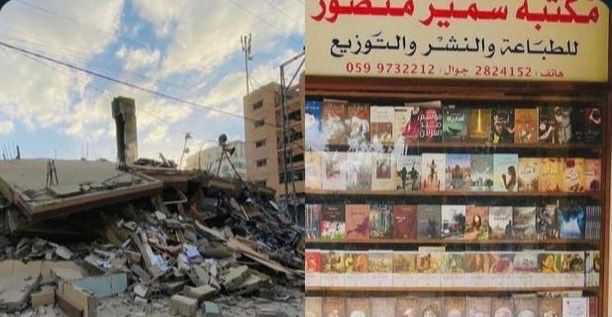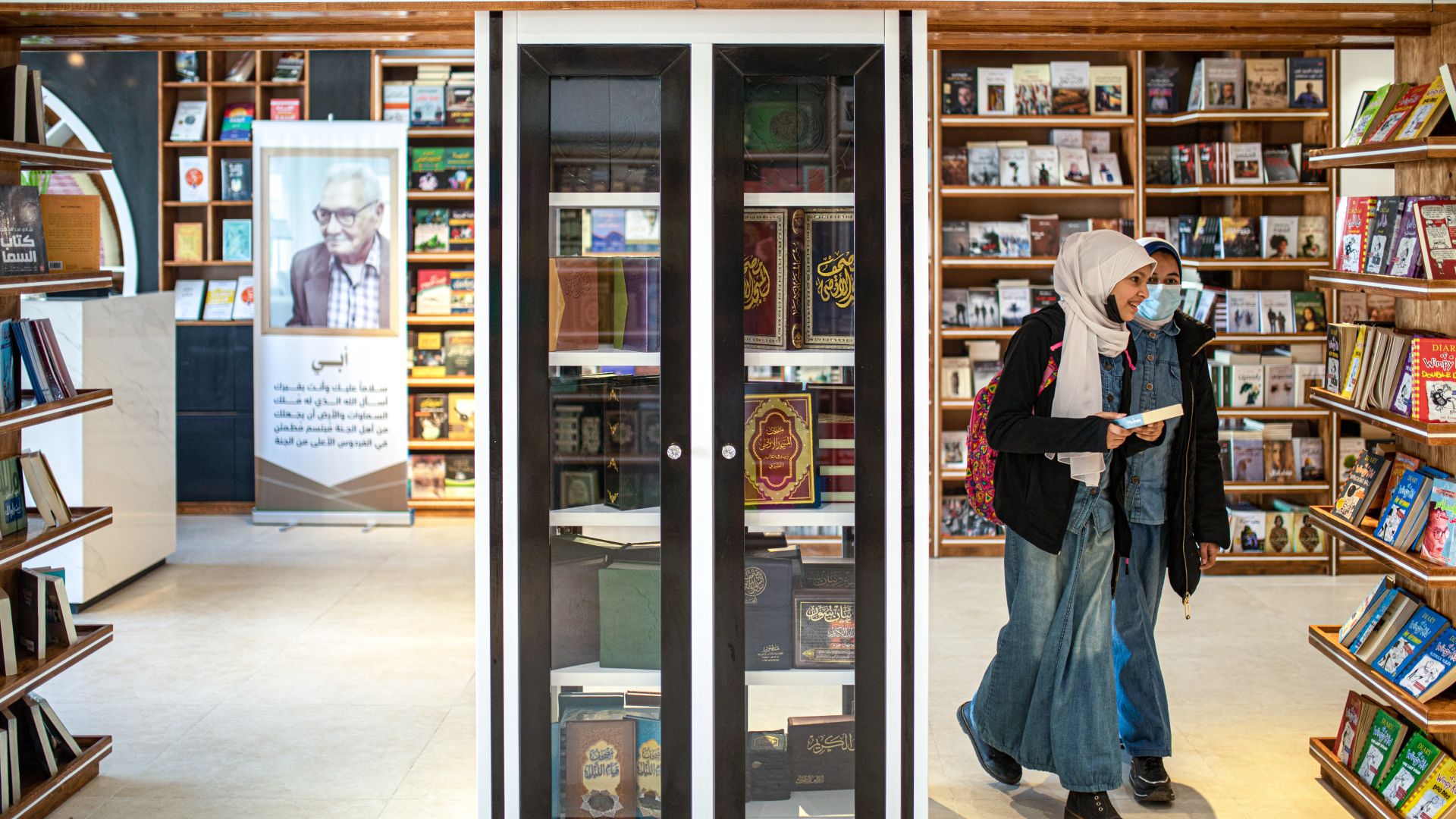Books across borders
Rebuilding the Gaza bookshop destroyed by Israel.
Gaza, Palestine – At 5am on the morning of May 18, 2021, Samir Mansour was at home watching TV, when he saw a warning that the Israeli army was about to bomb the five-storey building that housed his bookshop and life’s work.
He rushed the two kilometres (1.25 miles) to the shop on Gaza’s Universities Street – hoping to rescue some important papers and his laptop – but stopped 200 metres (650 feet) away. He was afraid to go in and risk being trapped inside when the air raid hit.
A few minutes later, Israeli planes fired two missiles. Samir could only watch as his bookshop collapsed.
“The building that hosted my dreams and achievements for 21 years collapsed in front of my eyes,” he says. “At that moment, I knew the meaning of pain, what it means to lose everything you loved.”
The bookshop had contained around 100,000 books, and Samir says the financial losses were estimated at about $700,000.
The attack was part of Israel’s 11-day assault on the Gaza Strip that killed at least 260 people and destroyed thousands of homes and businesses.
“I have no relationship with any armed group or political party. This was an attack on culture,” Samir says.
He has lived through two Intifadas and three wars against the Gaza Strip, but never before had his bookshop been destroyed.

Continents away, human rights lawyers Mahvish Rukhsana and Clive Stafford Smith saw photos of the debris that was all that remained of Samir’s shop – and came up with a plan. They launched an international fundraising campaign to rebuild it, calling for donations of books and money.
They didn’t just want to replace the books, says Clive, but to do it in a way that is “the epitome of what culture and education is all about, which is reaching across borders”.
The campaign collected 150,000 books from donors, many of whom added inscriptions and their email addresses.
“We wanted to encourage the human interaction between the people in Gaza and all around the world despite the imposed siege,” Clive says.
Nine months after it was destroyed, the new Samir Mansour bookshop opened - three floors with more than 300,000 books on topics including culture, education, religion and law.
Mahvish believes “the success of this project is a testament to the good in humanity.”
“In the face of incredible adversity, thousands of people the world over came together in support and solidarity with the people of Gaza.”
Now, Samir says, the bookshop is “many times stronger than it was before”.
Al Jazeera spoke to some of those who sent or collected books and to those awaiting them in Gaza about what the bookshop means to them.
